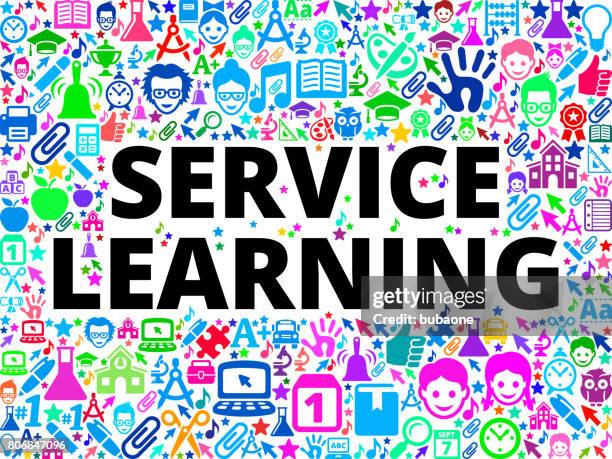I’ve just returned from a UWCSEA trip to Cambodia, where a group of students and parents were guided by three teachers in visits with three of our Service partners. These partners are NGOs with which we have long-standing collaborative relationships – Kuma Cambodia, Green Umbrella and Free the Bears. We saw first-hand what great work these groups are doing with their communities, and what contributions our students have made over the years. Buildings, paths, gardens, and painting are the obvious signs, but in these matters, relationships are the fundamental bedrock of partnership, and so our grade 4 – 7 students met, played with, laughed with and got to know the the ‘Kuma kids’. Rather undernourished, they look a few years young than they are (but they play football like pros, as our students found out the hard way). Initially a little awkward on both sides, it did not take long for the human bonds of youth to get beyond differences of colour, socio-economics or even language, and something more profound happened than can easily be captured in language after the event, that I hope and believe will stay with our the children long after the forget the football thrashing. Our parents learnt what service looks like in practice; also that ethical tourism can be of huge benefit to both tourist and local; that the effect on their children was deep; and that there are authentic ways for them to use the paid voluntary leave offered by many companies. We also squeezed in shopping and eating in NGO establishments, at prices with generous margins that support tailors, jewellers, seamstresses, waiters, cooks, and cleaners from poor and marginalised groups. We ended up with stomachs full of authentic local food, some splendid souvenirs, having made a contribution to people who are helping themselves. We left feeling we had made a small but meaningful difference, and that we had learnt a great deal.
So why am I writing about a problem with ‘Service’?
The problem I have is that the word ‘Service’ does not capture what we do these days. Long gone are the trips where we simply raised funds, visited to present them and then got treated like royalty. Those well-intentioned trips actually undermined the learning about partnerships that we want for our students, and were hardly conducive to the dignity of our partners. No; and as I have described these trips have evolved into an experience whereby our students come to learn a systems approach. That means that we need to learn look at problems from the perspective of the people who own the problems, not from a distance. Only then can we consider about how we might engage in long-term sustainable work to help the community meet these needs far into the future. So we intend this Primary/Middle trip to be a basis for these students to continue with these partners in future years, into High School and hopefully beyond (some of our alumni students work in NGOs during Gap years, for example). In other words, the trip is fundamentally about the learning for our students and – this is key – to do this, we need our service partners to bring about this learning just as much as they need us.

A great example here was when we went to see the “Book-book tuk-tuk” – a tiny motorised library that we helped fund several years ago, that visits some of the poorest villages, to read stories and lend a few books. Rather like the UK ice-cream vans, the tuk tuk plays music to announce itself, and the kids come running out to see what’s happening. An hour of literacy activities then follows. I asked if weekly visits were really likely to make much of a difference to literacy rates, and was humbled by the explanation about the real goals here. Because while literacy was the way to get funding, and the long term aim, there were many years of just letting the villagers learn to trust the commitment from the NGO, and for the NGO to get to know the village headman. Then there was the aim of having the parents, who initially watched from afar, start to edge closer and to take an interest. Then there was the way that the local staff were able to look closely at the children (and parents) to see signs of sickness, malnutrition or other serious matters. Then there was the fact that the stories read out were often about things like washing hands, or brushing teeth, which needed re-enforcing for health reasons. Then there was the aim of generating interest in going to school, in villages where there was no school. In that one hour, we learnt far more about how to go about meaningful, sustainable change that we were able to teach. Calling this “Service” implies a one-way street where we help others – but in truth our partners are helping us as we educate students about how to make a change. So who is serving who here?
If this is not “Service” then what is it? Well, a rose by any other name would smell as sweet so perhaps this is not such a big deal. It’s really what happens that counts; but perhaps we are more likely to do the right thing when we have a name that reflects the reality (there’s a reason we dislike the terms collateral damage and friendly fire). Furthermorea change might reflect the global move away from a potentially patronising and perhaps somewhat colonial let’s help the poor people type attitude.

So what’s the right name? A more accurate term might be sustainable development. When this was first suggested to me I was puzzled, but this trip has made me see the sense of it. These school NGO partnerships (what we currently call our “Service Programme”) are a sustainable way to support development of our students and the NGO communities. Furthermore the sustainable development title firmly places us among the tens of thousands of organisations and millions of people working to meet the UN Sustainable Development Goals to make the world a better place. There are designed to provide focus and inspiration to help end poverty protect the planet and ensure prosperity for all, and are perfectly aligned with our Mission. So this is less a name change, for me, and more a realisation of what we are really all about.



4 Responses
Thanks for articulating this Nick- there is definitely a growing understanding of what we mean by Service..and this sort of programme is definitely a way we both learn and contribute to Sustainable Development. Two issues this raises for me are:
1. We must be careful as we start to reframe our view, of seeing Sustainable Development as something that only happens in 'developing' countries and the only place where we contribute to it. The UN deliberately changed the focus of the SDGs to be a global issue for all nations as they replaced the MDGs. Our 'Service' programme within school and the local community in Singapore is equally a means of achieving Sustainable Development, just as the rest of a UWC education and its operations should be.
2. I applaud the mental re-set in thinking Service is a two-way process connecting care of self to others. What I have yet to be clear about in my own understanding is, with this change of view, where and how do we then answer Martin Luther King's "most persistent and urgent question" that we have so often used before in this context: "What are you doing for others?"? If trips like these are 'fundamentally about learning for our students', is the question now redundant within our Service programme and now only answerable in our daily interactions with our peers, friends and family? Whether we end up renaming what we do or not, we will definitely need a more robust and coherent philosophy behind what we do. I'm very pleased to see these crucial questions raised so openly for all our community, thanks again!
Thanks Nathan. Absolutely agree with #1 – and I guess that's a danger with "Sustainable Development", though perhaps the concept of "sustainability" is known to have a much broader appeal.
I also take your point #2; there is indeed an inherently moral purpose here. There are many morally excellent things to do, and I guess we use the 'learning for our students' filter to choose the many options; which ones allow them to develop? For me, the students who learn about sustainability and complexity and so on, are far more likely to be able to help others across their lives. So the learning piece is all about learning tools (such as complexity, systems thinking and so on) how to help others. I would like to this that helping self and helping others converges in a flourishing and meaningful life – the golden rule of "do unto others…" only makes sense if you are looking after yourself too, right?
Absolutely right! Our Commitment to Care for ourselves, others and the environment is definitely a good start to framing the holistic and interconnected nature of caring. We need to show it's all the same. This is the extension to the discussion we had about outdoor education taking us outside of ourselves..yet paradoxically only being understood by taking us into ourselves. What I am struggling with is the tension that our framing can create – even using the word 'others' is problematic – between promoting our moral actions as all about learning and good for our own wellbeing and our desire for genuine altruism and service which may not be planned, reflected on and system changing. Where do we now have space to encourage something that's hard and unappealing and even routine? Our Service programme now has deliberately moved away from hand-holding in old peoples' homes and litter collection /weeding type activities etc because the learning cannot so readily be expressed. This is a well-thought through change and I have championed myself the increased rigour and awareness of what is purposeful. I just worry it might leave a hole in the experience we want to give our children. We all know that sitting keeping an elderly person company or picking up garbage might be 'good for us' as well as the community…but if it no longer fits what we call service learning….when do we do it? I keep thinking about the P.J O'Rourke quote: "Everyone wants to save the Earth; no-one wants to help mum do the dishes". Was he talking about us? Take a look at the campus after lunch, when everyone has done 'Service' for a Global Concerns group.
Actually I prefer Sustainable Development to Sustainability..it implies we're getting somewhere…and will always be!
Yes, this is a great point. As you say, "where do we now have space to encourage something that's hard and unappealing and even routine?"
Perhaps we do too much, lay too much on, make it too scaffolded.
Food for thought.